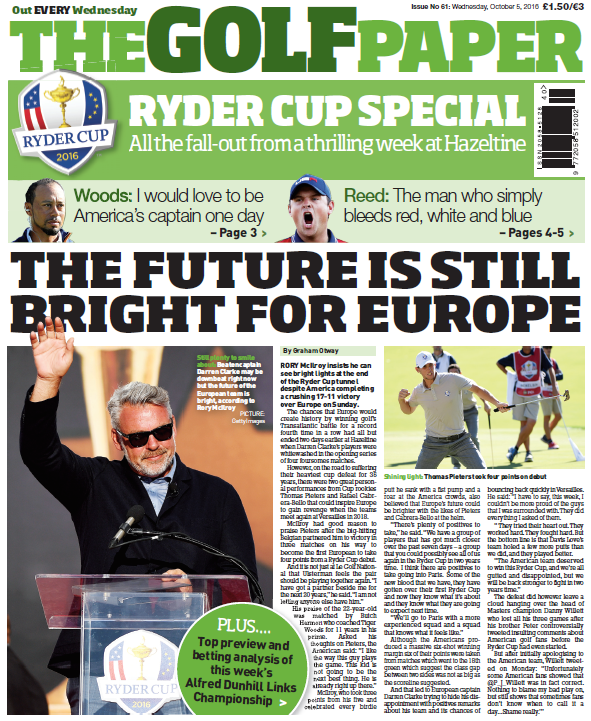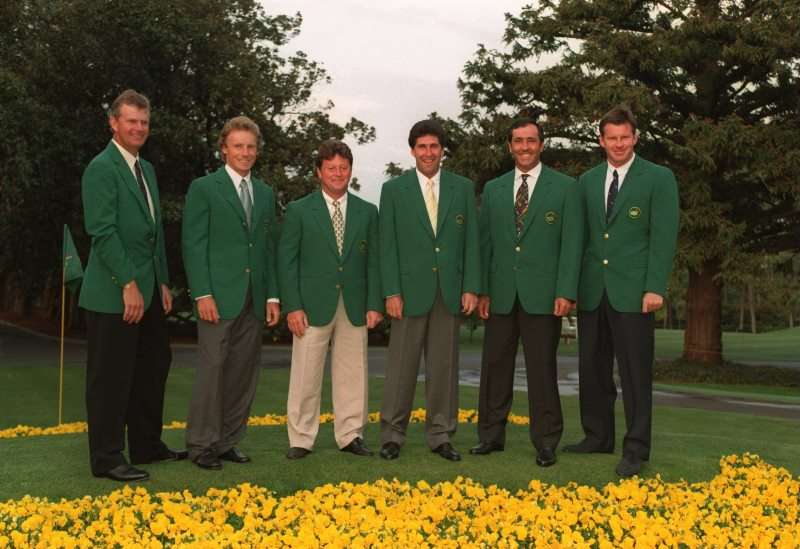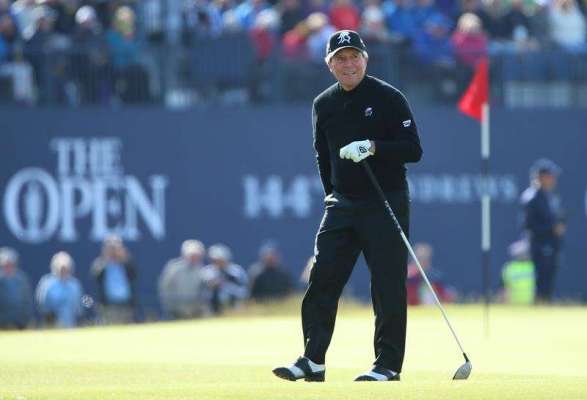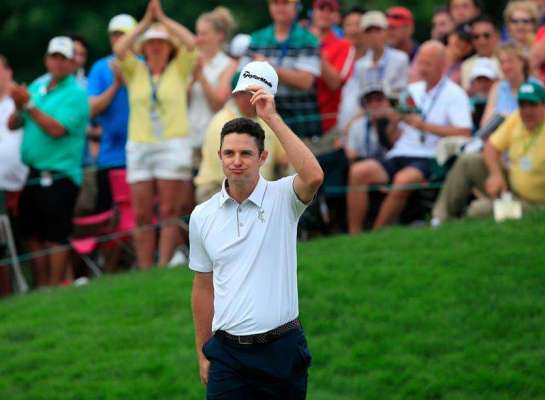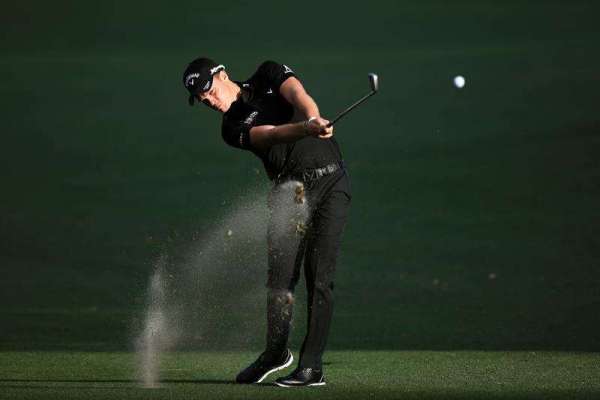Features
Seventeen years and counting for Euro success
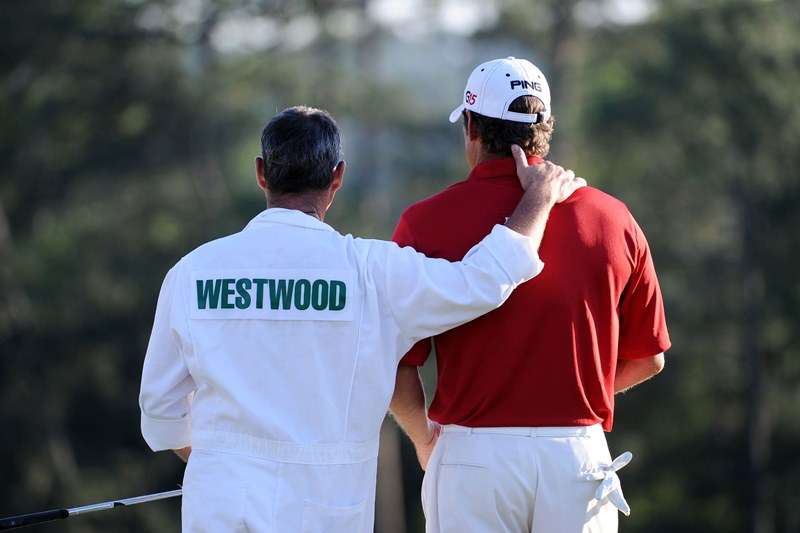
So near, yet so far: LEe Westwood is consoled by his caddie Billy Foster after finishing second at the 2010 Masters
(photo by Getty Images)
Between 1980 and 1999, six European stars (Seve Ballesteros, Bernhard Langer, Sandy Lyle, Nick Faldo, Ian Woosnam and Jose Maria Olazabal) slipped on a total of 11 Green Jackets. But since then: nothing. In this still young century, no golfer from the Old World has finished first in a Masters at Augusta National.
Given the level of success enjoyed in the last fifth of the 20th century, it is an odd omission from European golf’s CV. Especially when four from this side of the Atlantic – Lee Westwood, Luke Donald, Martin Kaymer and Rory McIlroy – have all ascended to the world No.1 ranking since the Millennium.
So what’s going on? Why have Europe’s best not found a way to emulate their illustrious predecessors?
“All the changes made to the course over the last decade or so hurt our chances for a while,” points out former European Tour pro Ewen Murray, who will be commentating from Augusta for Sky Sports.
“The players who were used to the course had to get used to it again. And we went through a phase after Paul Lawrie’s Open Championship win at Carnoustie in 1999 where Europeans weren’t winning any Majors, never mind the Masters. It goes like that sometimes.
“But bringing the excitement back into the course will help Europe’s chances. That and the fact that we now have more contenders than ever before.”
OK, but there has to be more to it than that…
“I think we’ve been in transition since the turn of the century,” says swing coach Pete Cowen, who works with former world No.1 Henrik Stenson, of Sweden.
“At that time the youngsters were probably not ready to win a Major and the older guys were a little past their best. Augusta takes a bit of knowing, especially the speed of the greens. When you first go to the Masters you don’t know that you often have to “miss” shots rather than hit them. Nick Price always used to say he was too aggressive for Augusta and he was probably right.
“Players like Ollie and Langer and Faldo did well there because they are great strategists. And you never see anyone win there who isn’t a great chipper. Sometimes we don’t concentrate on the thing that would win at Augusta – the little chip shots.”
Such an analysis does go some way towards explaining the continued failure of Kaymer to make an impact in the year’s first Major. The German, whose chipping issues continue to become more and more obvious, has missed the halfway cut at Augusta five times in eight starts.
On the other hand, chipping has never been the strength of Westwood’s estimable game, yet the Englishman has more than once come close to breaking his Major drought in sunny Georgia. Five times in the last six years he has finished eleventh or better. So there is more to Masters success than short-game prowess.
“You have to do everything well to win at Augusta,” contends Westwood.
“You have to putt well. Your short game has to be sharp. You have to hit it well tee to green.
“And you have to score well on the par-fives. There’s a lot of thinking to be done, too. Any gaps in your game will be exposed immediately.”
By extension then, Westwood and his European compatriots have collectively suffered such a fate. Somewhere between first tee and 18th green, Augusta National has found them out.
“You have to be a great putter to win the Masters, at least for that week,” says leading coach Peter Kostis, who doubles as a long-time commentator for CBS at the Masters. “Yes, some streaky putters have won at Augusta – those who got “hot” at the right time – but none of the Europeans have managed that.
“When you look at the top European players since 2000 – apart from Luke Donald – none of them have been consistently good putters. Lee, for example, could have won a couple of green jackets by now – if he were a better putter.
“Back in the days when Faldo, Ballesteros, Olazabal and Langer were winning the Masters, what they all had in common was great putting. The last line of defence at Augusta National is the fiercely sloping greens. So if you can’t putt, you can’t score well there.
“I think Rory McIlroy would have won in 2011 if he had been a better putter. The putts he missed early on in the final round seemed to rattle him.
“Had he made those, I think he would have calmed down and the back-nine debacle that did ensue would not have happened.”
Ah yes, McIlroy. Longer off the tee than anyone who is straighter than he is and straighter than anyone who is longer than he is, the 26-year-old Irishman has an inherent advantage over everyone else in the field this week. And he favours the right-to-left shot shape that has long been touted as the preferred route to success on the course created by the legendary Bobby Jones and designer Alister Mackenzie.
“Much is made of the fact that a right-to-left draw is the preferred shot round there,” continues Kostis, who works with Paul Casey, another player with hopes to break through this year.
“But Jack Nicklaus won six times playing a left-to-right fade. Which is what Tiger did too, most of the time. Whatever shape a player prefers, however, another big Masters key is how well a player controls his approach shots.
“You have to be below the hole on those greens to give yourself a decent chance. That isn’t going to make putting easy, but it does make it less difficult.”
There’s more to this whole thing than mere technique, too. If the players themselves are to be believed, the pressure of the back nine on Masters Sunday is like nothing else in the game outside of, maybe, the Ryder Cup.
“When I think of guys who have won the Masters, they all managed their emotions well over the four days,” confirms Casey. “Say what you will about the course – the immaculate preparation, the whiteness of the bunkers, the speed of the greens – everything is done for a reason.
“The bunkers are actually so white so that the sand will blind you. The trees grow in over the tees so that you can’t flight the ball any way you want.
“And the fairways are cut from green to tee to reduce run on the ball. Everything has a purpose.
“Plus, the course tests the players mentally as much as it does physically. It frustrates them and plays with their minds.
“More than once I’ve seen Augusta set up as tough as it could possibly be on Monday and Tuesday and it scares the c**p out of guys.
“I’ve seen players actually panicking on the range after a practice round.
“The winner is one who understands all of that. He rolls with the punches and manages himself well. He takes his medicine when he makes a mistake.
“You do have to take the course on – if you lay down it will crush you – but you have to know when to take what it gives you. Often enough, when you get into the wrong spot, a bogey is a good score.”
Still, for all the hypothesising, the fact remains that Olazabal (sadly absent this year) remains the last European to win at Augusta.
“It is odd, especially when you think about how good the best Europeans are right now,” says 2005 US Open champion Michael Campbell.
“They will take a very strong representation to Augusta. And all those Ryder Cup victories have to help them, as well as Padraig Harrington, Graeme McDowell, Justin Rose and Martin Kaymer all winning Majors in the last few years. Collectively, that must be a boost to their self- belief. The others know they can beat those guys at least some of the time so they now also know that they are capable of winning a Major.
“I remember what Padraig said to me not so long ago. He watched me win the US Open and thought he could do the same. So it will happen for the Europeans sooner rather than later.”
Indeed, more than any other Major, the Masters rewards those who have played in the tournament multiple times. It is no coincidence that Fuzzy Zoeller in 1979 is the last tournament rookie to win.
“Experience counts for so much at Augusta,” agrees Stenson, a former Players champion.
“This year will be my sixth Masters and a few of the other guys have played similar numbers. So we should be ready to win.
“You need to play that course over and over. You need to make your mistakes and learn from them. You build on those experiences. Then it’s all down to playing well. We just have to keep putting ourselves in position. If we do that, one of us will win.”
Tagged The Masters
